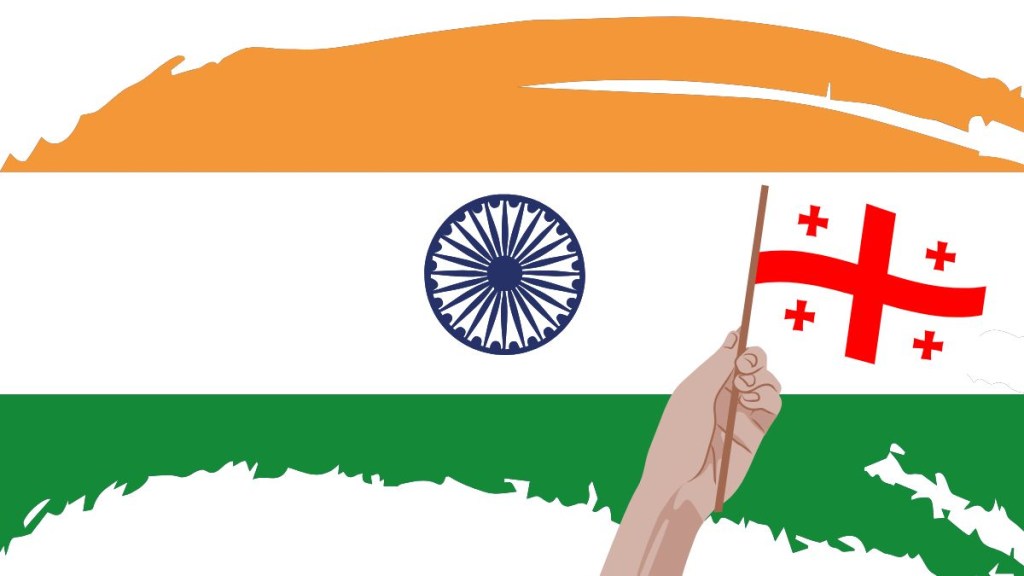Akin to the immigration and visa nightmare unfolding for international students in the United States, another country appears to have gone into overdrive with the whole deportation ordeal. Georgia, located at the intersection of Eastern Europe and West Asia, was once deemed a bridge between the continents. As a result, the country earned its reputation as a hub for students and tourists, with simpler visa processes as its peak attraction.
Following Georgia’s independence from the former Soviet Union in 1991, India was among the first countries to recognise the country. According to the Indian Express, only 2,000 Indians were in Georgia in 2016, with half of them being students. As of late December 2024, estimates indicate those numbers have grown ten-fold, with students alone hitting the 16,000 mark.
A recently shared report, however, paints a different outlook altogether. An immigration lawyer specialising in student cases and affiliated with a firm in the Georgian capital Tbilisi, argued, “The number of deportation targeting Indian and Pakistani national has sharply increased,” as quoted by The Wire. The legal expert further noted that even people with valid visas had become victims of arbitrary visa rejection, detentions and deportations without any clear explanation or due process.
Even in the face of these worrisome numbers, the lawyer divulged that most families refuse to go public about their own harrowing experiences. “The silence shows how fearful they are of further harassment,” he added.
Indian medical student deported: ‘Treated like a criminal’ in Georgia
However, few families who faced similar incidents in Georgia voiced their unfiltered takes–but with pseudonyms–about alleged racial profiling, rendering the country “unsafe” more than ever. She also highlighted that the fear of sharing their side of the story accompanied with real names was nothing but a reflection of “how unsafe we feel in Georgia.”
One such traumatic case was about an Indian-origin medical student, who decided to leave Qatar and study medicine in Georgia this past July. Suman’s mother Meera shared with the outlet that five years-worth of documentation and financial burdens merely devolved into a mortifying situation for her son, who was handcuffed, physically assaulted and deported without any proper reasoning.
His mother has since accused the country’s officials of destroying Suman’s dreams and treating him “like a criminal just because of his skin colour.” Over the arduous stretch of three years, the Indian medical student’s family tried their best to keep their son in Georgia. Pushing for visa extensions, TRC (Temporary Residence Card) renewals or university documentation for his studies in Tbilisi – they did it all.
Alas, nothing seemed to work in their favour. They ultimately fell back on their final resort and enlisted a lawyer’s help. However, that, too, merely ended up increasing their financial burdens, with fees amounting to over $25,000.
Visa repeatedly rejected: Georgia detention followed by no-warning deportation
Citing racial profiling as the alleged prime reason for the consequences, the student’s mother revealed that her son was ultimately detained without any prior warning. As per her account, Suman’s visa rejections were all fuelled by “systemic failures,” resulting in claims about turning down his paperwork over “minor errors like a wrong email address.”
Further detailing her son’s arrest, Meera divulged that Suman was walking outside his flat when plainly dressed officer violently handcuffed him and detained him for two days. During this period, the Indian-origin student was denied water and humiliated “like his life didn’t matter,” following which he was finally put on a plane. The entirety of the experience has only prompted mental struggle, leaving Suman nightmare-riddled, sleepless, anxious and “broken inside.”
Suman is not the only Indian student to have faced such a fate. According to details of his time in detention, the place was not only overcrowded, but also filled with other Indian students, who for months had not received any legal support or access to embassies. The said person was deported himself nearly five years into his medical school, much like other students who had been deported just days prior to their graduation ceremonies.
Despite having sounded the alarm on the crisis, Meera, who didn’t reveal her real name, asserted that fear of speaking out had consumed them, thinking of troublesome consequences it may unleash for their children.
The Georgian Embassy in India, on the other hand, had nothing fruitful to share when confronted about the fearful state of affairs in the foreign country. Without offering crucial insight into the matter, the officials merely shared the statement: “Kindly note it is beyond the competency of the Embassy to involve with Border Security matter. Please contact Ministry of Internal Affairs, Georgia for this concern.”
